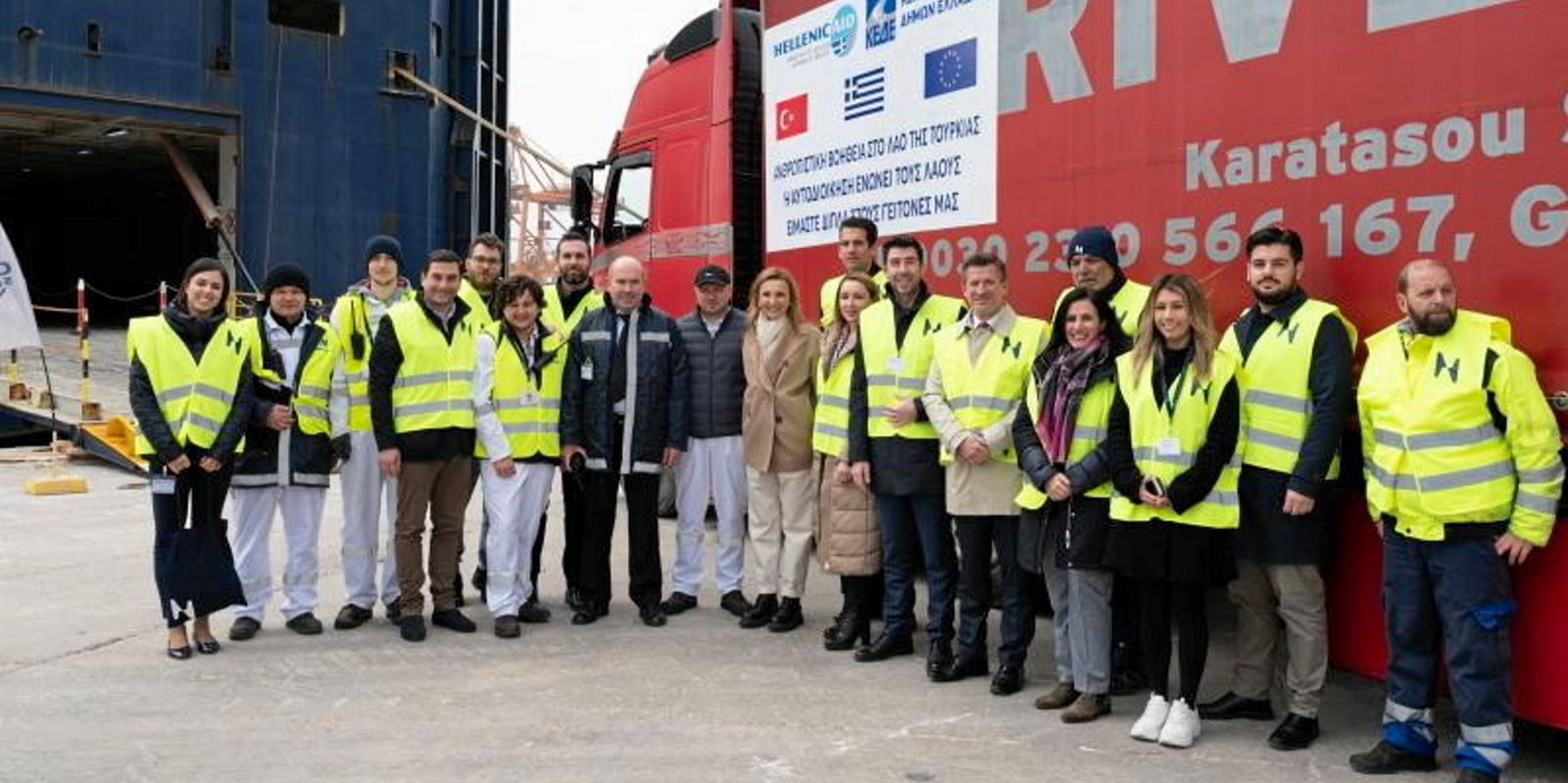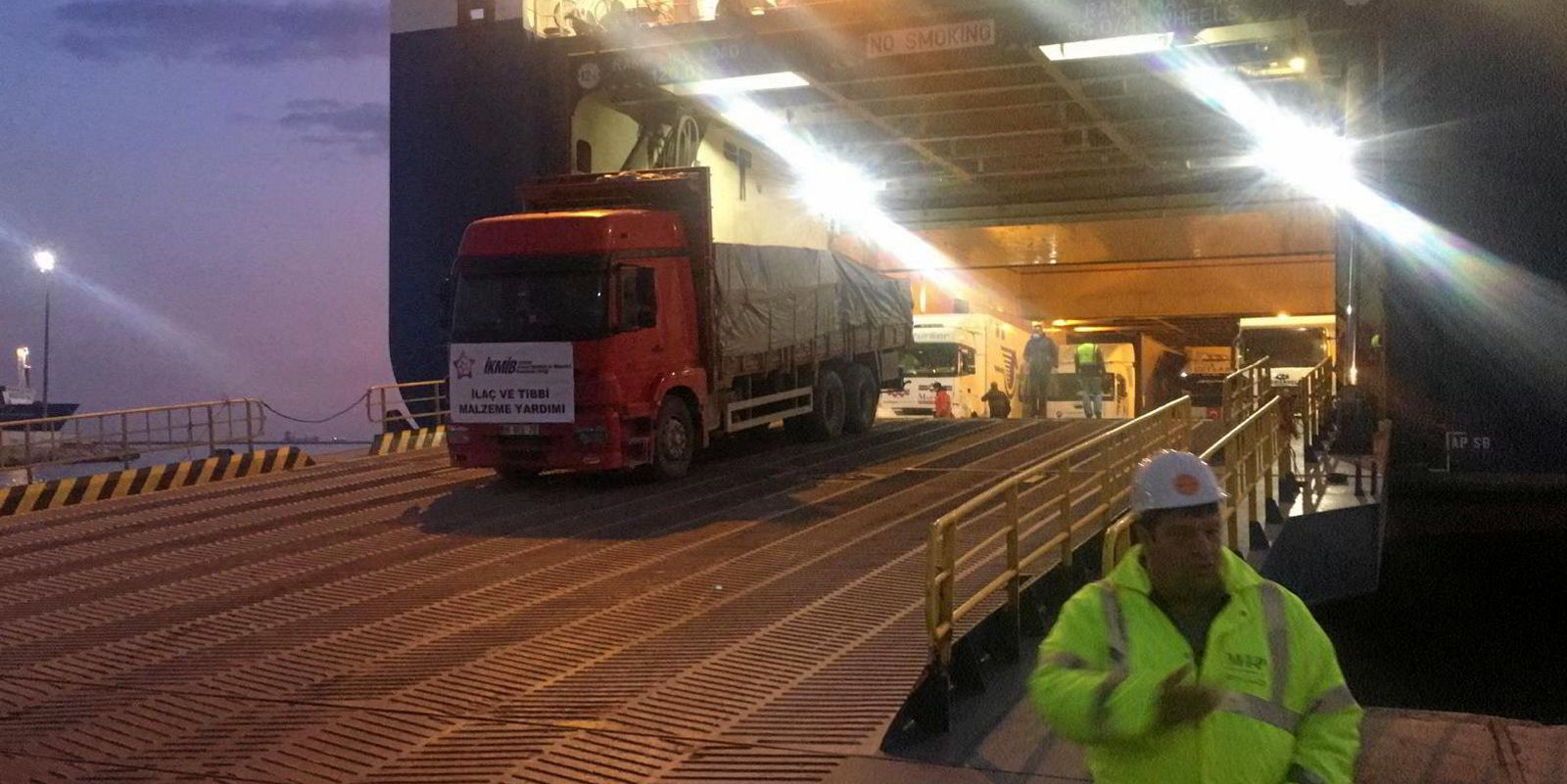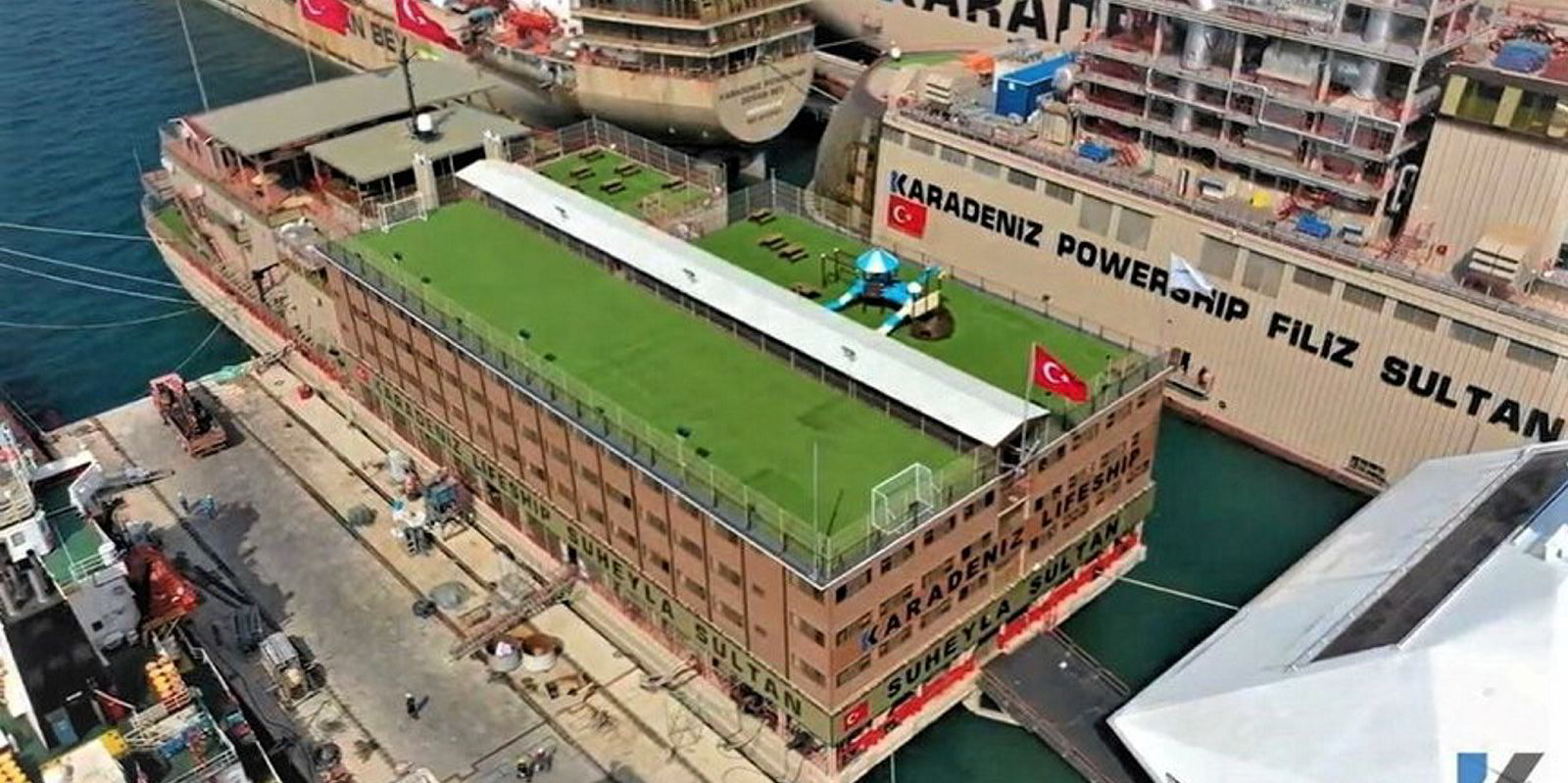Logistics giants MSC Mediterranean Shipping Company and CMA CGM have thrown their weight behind efforts to provide aid to the tens of thousands of earthquake victims in Turkey and Syria.
On 16 February, the 21,518-gt MSC Aurelia (built 1980) left Naples towards south-east Turkey, carrying 60 pallets of medical supplies, food, hygiene items, warm clothing, blankets and children’s toys, MSC said in a statement.
Fifty boxes of thermal shirts donated by the Vatican are also on board.
According to ship trackers, the MSC Aurelia is scheduled to arrive on 20 February at the port of Iskenderun.
Turkey’s worst-hit terminal has shut down all operations except for humanitarian aid.
Cargo vessels arrive there day and night, providing material collected by donors both within and outside the country. The effort is coordinated by the Turkish government in cooperation with the Turkish Shipowners’ Association.
According to Turkey’s general shipping directorate, 15 vessels have completed humanitarian voyages to Iskenderun and the nearby port of Mersin since a wave of deadly earthquakes struck the area on the night of 6 February.
On their ballasting legs away from Iskenderun, vessels such as the 19,000-dwt Transfighter (built 2001) have evacuated 1,334 earthquake victims.
More than 44,000 people have lost their lives in Turkey and Syria, according to the latest count, which is rising by the hour.
Tens of thousands survived but saw their homes destroyed.
Ships will play a key part in housing some of the homeless.
MSC said the MSC Aurelia will remain docked in port in Turkey “at the authorities’ disposal to provide accommodation”.
Normally used as a passenger and vehicle ferry, the ship offers more than 1,000 beds, as well as leisure spaces including a restaurant, a cinema and video-game arcades.
More such ships are on the way.
TradeWinds has already reported about Turkey’s Karadeniz Holding planning to send two vessels to the region with the capacity to host 3,000 victims — the Karadeniz Lifeship Suheyla Sultan and the Karadeniz Lifeship Rauf Bey.
These ships are officially registered as the 9,400-dwt Karadeniz Powership Istanbul (built 1976) and the second as the 19,638-gt One World Karadeniz (built 1996).
The Karadeniz Lifeship Suheyla Sultan was originally in service as a non-propelled crane vessel. The Karadeniz Lifeship Rauf Bey used to be the high-speed ferry Stena Explorer when Karadeniz bought it in 2015, with plans to convert it into a floating office facility.
Both ships will now be used for humanitarian purposes for the first time.
A Karadeniz Holdings spokesperson contacted by TradeWinds said they are currently being prepared for their mission at the company’s own yards in Turkey and will be sent to Hatay and Iskenderun “as soon as possible”.
Karadeniz will shoulder the entire cost of their refitting and deployment.

From Paris and Piraeus
Big logistics companies can offer emergency housing by other means as well.
MSC said it is arranging the transport of thousands of empty containers in Turkey and Syria to accommodate displaced families.
The Swiss liner company’s local Turkish operation is already using such containers to house 300 of its own homeless employees and families.
CMA CGM, a big French liner, is also helping by air.
Five days after the earthquakes struck, the company sent an aircraft to Turkey at its own cost, lifting a field hospital to be deployed by French civil security.
Aid is also arriving from the other side of the Aegean.
The 2,200-ceu Neptune Okeanis (built 2005), a car carrier owned by the president of the Union of Greek Shipowners Melina Travlos, deviated from its course to carry 250 cubic metres of blankets, bedding, heaters and medicines collected by Greek donors to Iskenderun.
“We stand by our neighbours,” Travlos said as the ship departed Greece.
Other Greeks help with cash. Marios Iliopoulos, an owner of ferries and cruise ships, announced late on 17 February that he would donate €1m ($1.07m) for victims.
“Even though in the past [there were] many reasons to divide us, at present there is much to unite us,” Iliopoulos said after meetings in Turkey with the country’s president Recep Tayyip Erdogan and foreign minister Mesut Cavusoglu.




